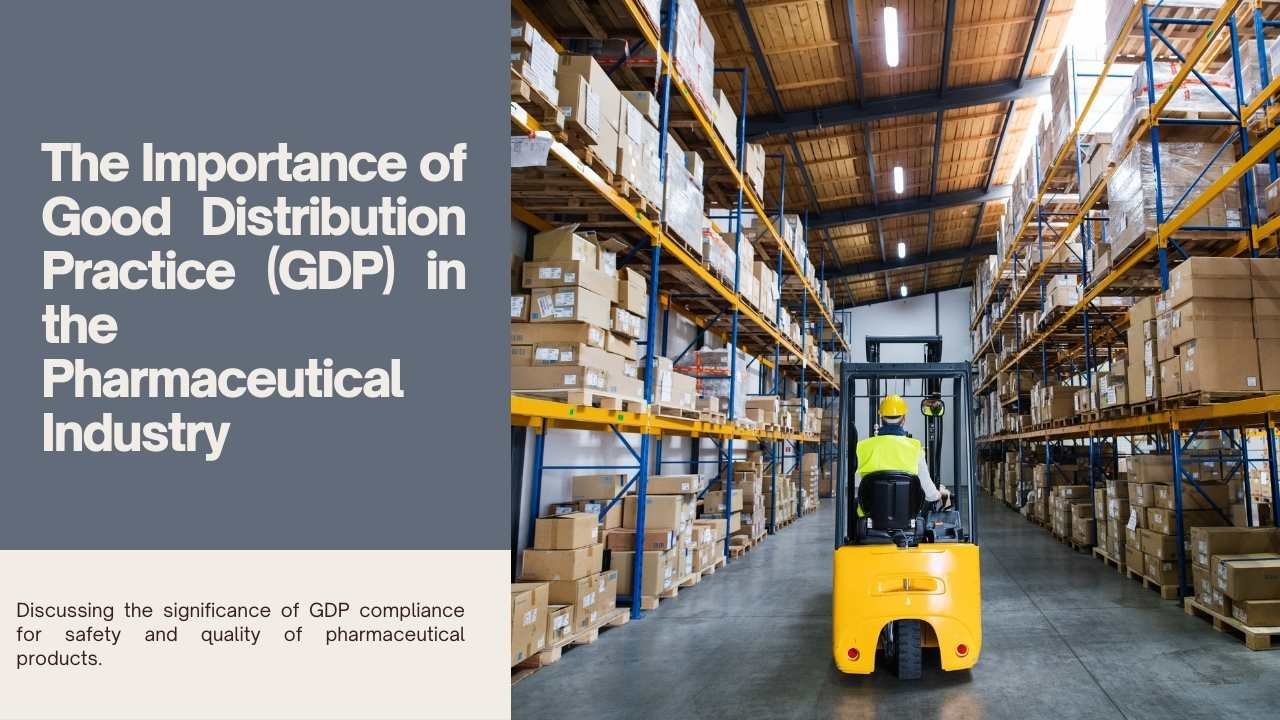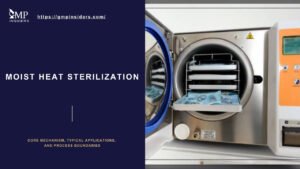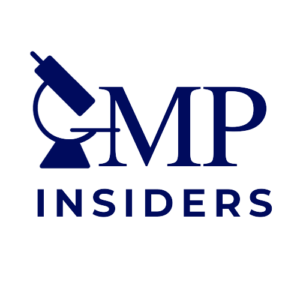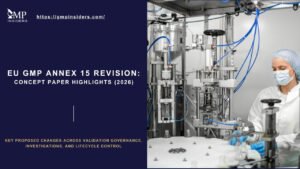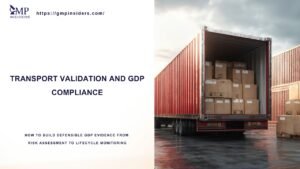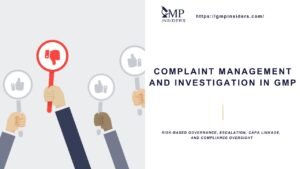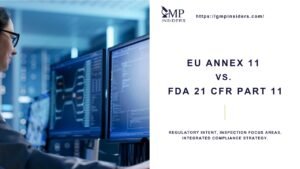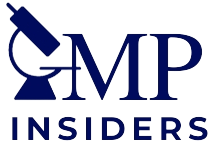Good Distribution Practice (GDP) is a crucial aspect of the pharmaceutical supply chain that ensures the quality, integrity, and safety of medicinal products and active pharmaceutical ingredients (APIs).
The European Medicines Agency (EMA) defines Good Distribution Practice (GDP) as a set of fundamental standards that wholesale distributors must adhere to in order to uphold the quality and integrity of pharmaceuticals throughout the supply chain.
Adhering to Good Distribution Practices for pharmaceutical products guarantees that:
- Medications are consistently stored under appropriate conditions, even during transportation, to prevent contamination by or of other products.
- There is a sufficient turnover of stored medications.
- The correct products reach the designated recipients within an acceptable timeframe.
What is Good Distribution Practice?
GDP is a comprehensive set of standards that dictate the procedures and practices involved in the distribution of medicines for human use and their active ingredients. This ensures that wholesale license and authorization holders adhere to stringent criteria, ultimately guaranteeing the quality, safety, and security of medicinal products throughout the pharmaceutical supply chain.
Why is Good Distribution Practice Important?
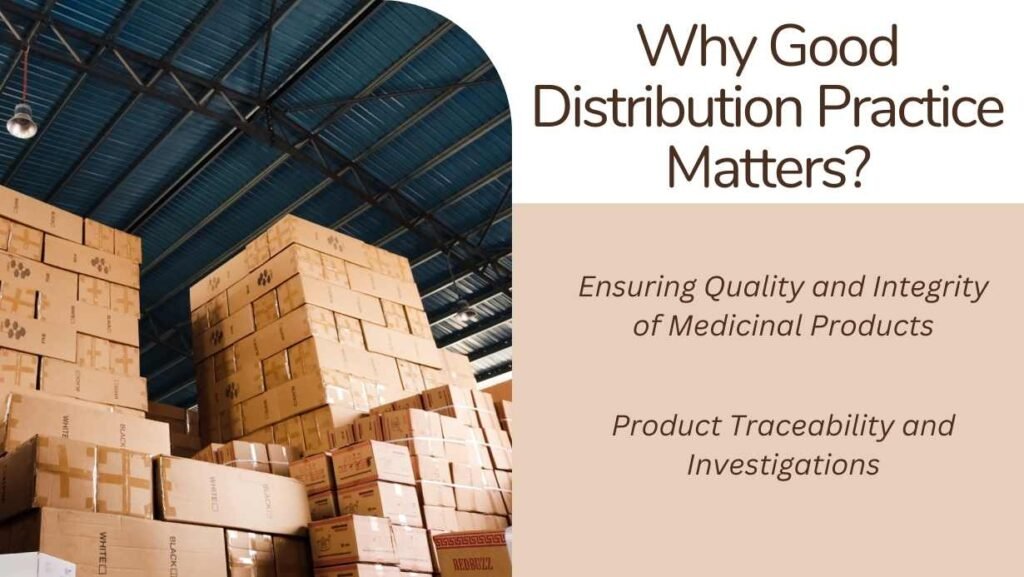
The significance of GDP in the pharmaceutical industry cannot be overstated. Any lapse in distribution can lead to shortages, delays, and the infiltration of falsified medicines into the market, posing significant risks to public health.
Moreover, GDP facilitates product traceability, a crucial aspect during official investigations of quality issues or incidents involving pharmaceutical products. By following good distribution practices, wholesale distributors not only safeguard their reputation but also contribute to public safety and customer trust.
Ensuring Quality and Integrity
One of the primary reasons why GDP is important in the pharmaceutical industry is to ensure the quality and integrity of medicinal products. The distribution process is complex, with different storage requirements and expiry dates for various medications.
Without proper practices in place, there is a risk of product degradation, contamination, and the introduction of falsified medicines into the market.
By following GDP guidelines, all stakeholders in the supply chain can implement measures to maintain the identity, strength, quality, and purity of drugs. This includes storage conditions, proper handling and transportation, and effective control of operations. It helps prevent the distribution of substandard or counterfeit products that could harm patients.
Product Traceability and Investigation
GDP plays a crucial role in product traceability, which is essential for official investigations of quality issues or incidents involving pharmaceutical products. In the event of a quality concern or adverse event, being able to trace the product’s journey through the supply chain is vital for identifying the source of the problem and implementing corrective actions.
By adhering to GDP guidelines, wholesalers and distributors can establish robust documentation and record-keeping practices. This ensures that all parties involved in the distribution process can be readily identified, and complete traceability of medicinal products is maintained. These records are also important for regulatory authorities to verify compliance with GDP requirements.
Who Needs GDP Certification?
In the European Economic Area (EEA) and the UK, GDP certification is mandatory for all wholesale distributors of medicines. The European Medicines Agency and the Medicines and Healthcare Products Regulatory Agency (MHRA) oversee the certification process in the EU and the UK, respectively. Certification is issued by the competent authority upon successful inspection, ensuring compliance with GDP standards.
The certification process involves inspections by competent authorities to ensure compliance with GDP guidelines. The certificates are issued when the inspection is concluded and all areas are found to be GDP compliant. The validity of GDP certificates may be extended under certain circumstances, such as pandemic-related restrictions.
GDP Guidelines and Principles
GDP guidelines are based on international standards and regulations, such as the World Health Organization (WHO) Good Distribution Practices for Pharmaceutical Products and the European Commission (EC) Guidelines on Good Distribution Practice of Medicinal Products for Human Use. These guidelines provide a framework for ensuring the quality and integrity of pharmaceutical products throughout the distribution process.
Quality Management System (QMS)
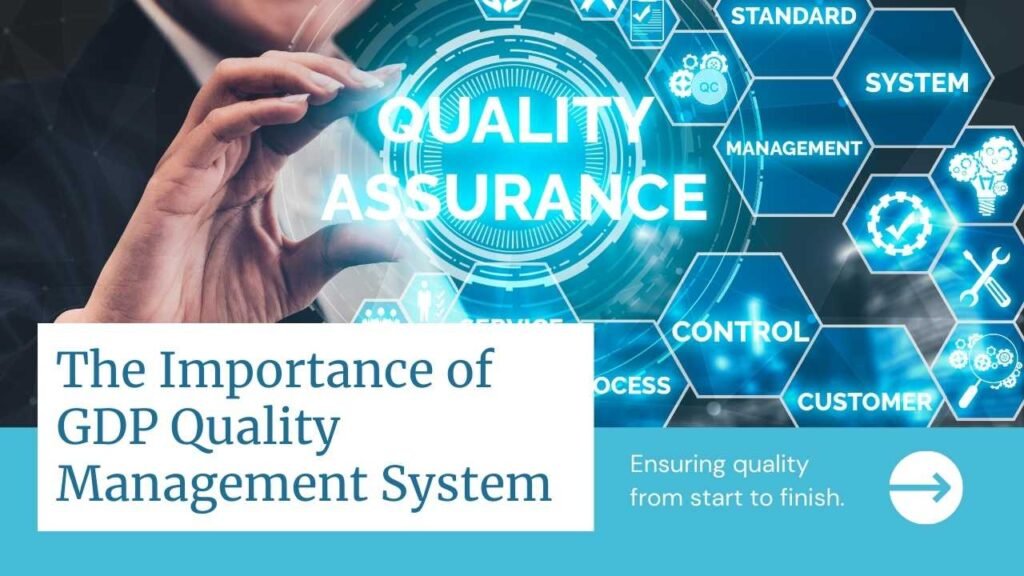
A robust quality management system (QMS) is a fundamental requirement of GDP. It encompasses the organizational structure, procedures, processes, resources, and actions needed to demonstrate compliance with quality requirements.
A documented quality policy, authorized procurement and release procedures, and regular risk assessments are essential components of a quality management system.
Tips for Effective Implementation in QMS:
- Ensure the management’s active participation and leadership commitment in implementing and maintaining the quality system.
- Maintain a fully documented quality system, including a quality manual, to ensure transparency and clarity in processes.
- Adequately resource the quality system with competent personnel, suitable premises, equipment, and facilities.
- Establish and rigorously implement a change control system that incorporates quality risk management principles.
- Extend quality system control to outsourced activities, assessing competence and monitoring performance regularly.
- Conduct formal management reviews periodically, considering performance indicators, emerging regulations, innovations, and changes in the business environment.
- Embrace a systematic approach to quality risk management, ensuring it is commensurate with the level of risk involved.
- Effectively communicate the outcomes of each management review internally in a timely manner.
Personnel

Appointing a responsible person is a crucial aspect of GDP compliance. The responsible person, also known as the qualified or designated person, oversees the implementation and maintenance of the quality system. They are responsible for ensuring proper GDP training for all personnel involved in distribution and monitoring the effectiveness of training programs.
Tips for Effective Implementation – Personnel:
- Designate a Competent Responsible Person: Ensure the responsible person meets legislative requirements, possesses a pharmacy degree, and maintains continuous competence in GDP.
- Clearly define and communicate responsibilities for all personnel involved in wholesale distribution activities.
- Develop and maintain an organizational chart outlining the roles, responsibilities, and interrelationships of all personnel.
- Establish comprehensive initial and continuing training programs for all personnel based on written procedures.
- Keep detailed records of all training, including specifics on personnel handling specialized products.
- Implement and adhere to appropriate hygiene procedures, considering health, hygiene, and clothing relevant to the activities.
- Periodically assess and document the effectiveness of training programs and personnel competence.
Premises and Equipment
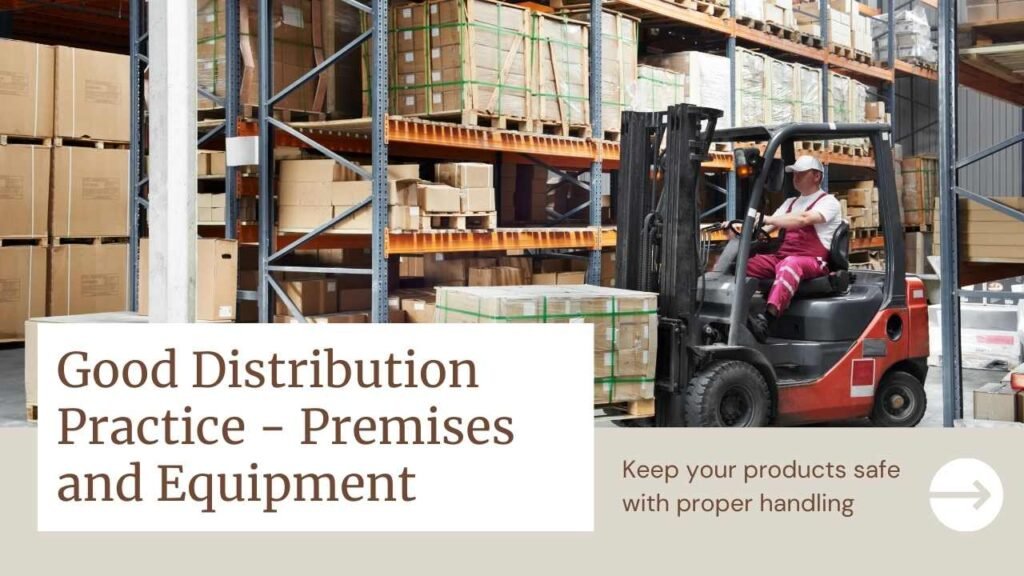
Wholesale distributors are mandated to possess appropriate premises, installations, and equipment for the effective storage and distribution of medicinal products. The emphasis is placed on maintaining clean, dry premises within acceptable temperature limits.
Regarding premises, it is essential to design or adapt them to meet necessary storage conditions while ensuring security, structural integrity, and sufficient capacity. Storage areas need to be segregated, either physically or through an electronic system, with due attention given to specific storage requirements for products with special handling instructions, hazardous materials, and those posing specific safety risks.
Tips for Effective Implementation for Premises and Equipment:
- Implement effective segregation practices, either physical or electronic, for different categories of medicinal products.
- Regularly monitor and map temperatures in storage areas, and implement procedures to address fluctuations and risks.
- Enhance security measures for areas storing hazardous materials and products with specific safety risks.
- Establish and maintain procedures for cleanliness and hygiene in premises, with regular cleaning programs and appropriate equipment.
- Develop and adhere to planned maintenance schedules for key equipment, ensuring operational functionality.
- Ensure computerized systems are validated before use, regularly updated, and have robust data protection measures in place.
- Identify key equipment and process validation needs through a risk assessment, and document and address deviations from established procedures.
- Regularly back up data from computerized systems, storing it securely for the required period, and regularly test alarms for functionality.
Documentation
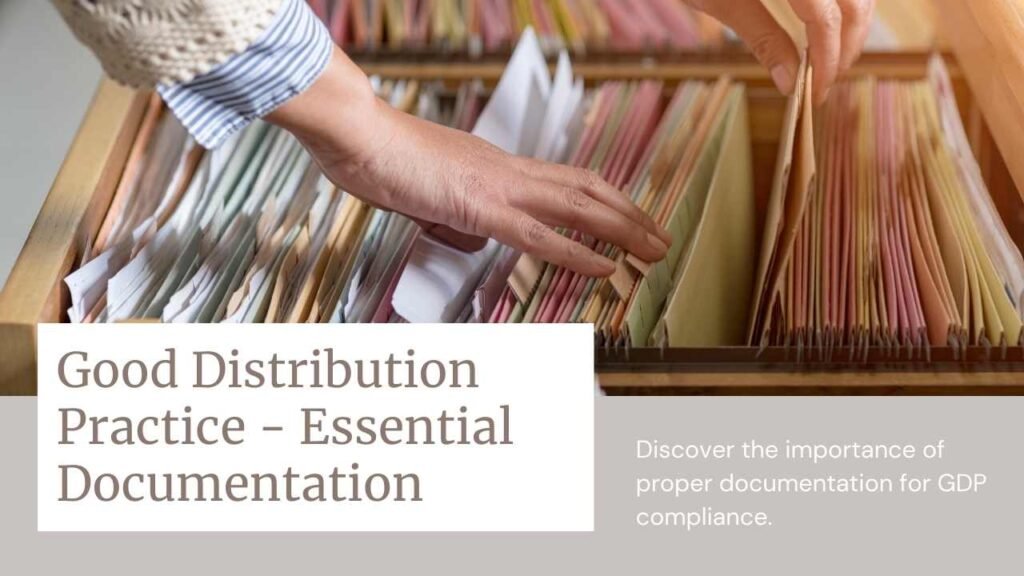
Maintaining comprehensive documentation is a critical aspect of GDP compliance. All records and documents, including those related to distribution, must be sufficient to enable complete traceability of medicinal products.
Documentation should be approved, dated, and authorized by relevant personnel. Records should be retained for a specified period and made available for inspection by regulatory authorities.
Tips for Effective Implementation – Documentation:
- Ensure all documentation is written in a clear, unambiguous language understood by personnel. Use a language that aligns with the comprehension levels of the staff involved.
- Secure approval, signatures, and dates from authorized personnel, especially the responsible person. Establish a systematic approach for obtaining approvals to maintain document validity.
- Clearly sign, date, and provide reasons for any alterations made in the documentation. Ensure alterations do not compromise the readability of the original information.
- Adhere to specified retention periods in national legislation, deleting or anonymizing personal data when no longer necessary. Implement secure data management practices, especially concerning personal information.
- Facilitate easy access to necessary documentation for all employees involved in relevant tasks. Consider implementing digital solutions to enhance accessibility and retrieval speed.
- Regularly review and update documents to reflect current practices and requirements. Apply version control mechanisms to avoid the inadvertent use of outdated versions.
- Archive superseded or obsolete procedures after removing them from active workstations. Clearly communicate the status of documents to prevent confusion among users.
- Maintain detailed records for all transactions in medicinal products, capturing essential information like dates, product details, quantities, and batch numbers. Ensure consistency and accuracy in recording transactional data.
- Encourage the real-time recording of operations to maintain accurate and contemporaneous documentation. Implement systems that streamline the recording process without compromising accuracy.
Operations
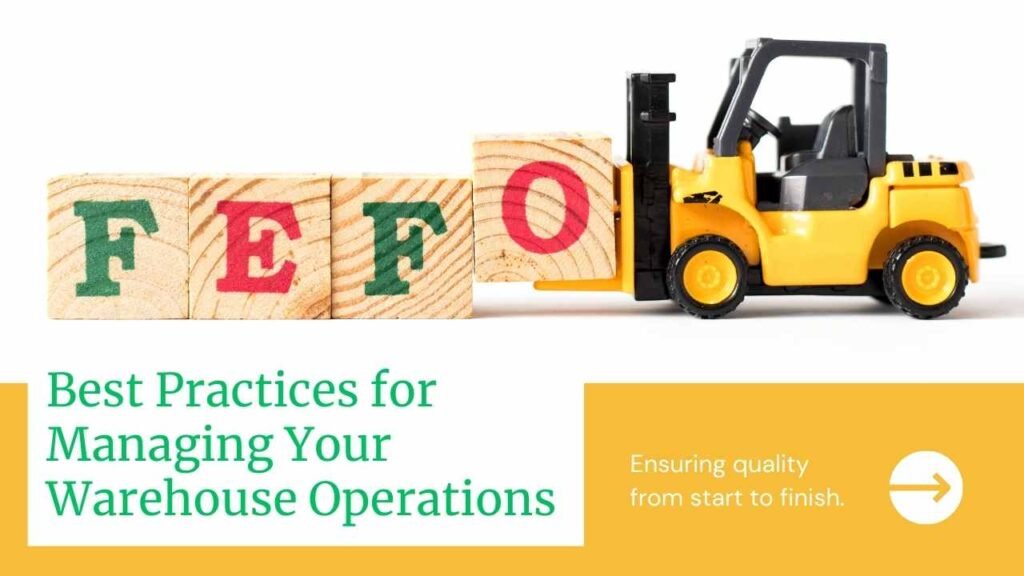
The key principle is to maintain the identity of medicinal products throughout the distribution process and minimize the risk of falsified products entering the legal supply chain. Wholesale distributors are required to qualify suppliers, obtaining medicinal products only from authorized entities with the necessary distribution or manufacturing authorizations.
Due diligence checks, considering factors like supplier reputation and pricing, are essential when entering into new contracts.
Storage practices include maintaining separate storage for medicinal products, adhering to the “first expiry, first out” (FEFO) principle, and handling products nearing expiry appropriately.
RELATED: FEFO vs FIFO vs LIFO
Destruction of obsolete goods involves identification, segregation, and compliance with national or international requirements. Supply operations require documentation such as delivery notes, with records maintained for tracing the actual location of the products.
Tips for Effective Implementation in Pharmaceutical Operations:
- Supplier Qualification: Conduct due diligence checks before entering into contracts with new suppliers. Pay attention to supplier reputation, pricing anomalies, and offers of medicinal products more susceptible to falsification. Regularly recheck and document supplier qualifications.
- Customer Qualification: Ensure that customers possess valid wholesale distribution authorizations. Monitor transactions and investigate irregularities, particularly for controlled substances. Periodically recheck customer qualifications and compliance with legal provisions.
- Receipt of Medicinal Products: Implement thorough checks to verify the correctness, origin, and condition of arriving consignments. Prioritize and immediately transfer medicinal products with special storage requirements. Ensure compliance with written procedures before transferring batches to saleable stock.
- Storage Practices: Adhere to the “first expiry, first out” (FEFO) principle in stock rotation. Implement practices to prevent spillage, breakage, contamination, and mix-ups during storage. Regularly perform stock inventories and investigate and document stock irregularities.
- Destruction of Obsolete Goods: Develop and follow a written procedure for the identification and destruction of obsolete medicinal products. Ensure compliance with national or international requirements for the handling, transport, and disposal of such products. Retain records of all destroyed medicinal products for a defined period.
- Picking Process: Establish controls to ensure the correct products are picked during the fulfillment process. Consider the remaining shelf life of the product during picking operations.
- Supply Operations: Enclose proper documentation (e.g., delivery notes) for all supplies, including essential details like batch numbers and applicable transport conditions. Maintain records for effective traceability of the actual location of supplied products.
Complaints, Returns, Suspected Falsified Medicinal Products And Medicinal Product Recalls
Establishing effective processes for handling complaints, returns, and recalls is essential for GDP compliance. Wholesalers must promptly inform manufacturers or marketing authorization holders about quality complaints and conduct thorough investigations for distribution-related complaints.
Returns should be assessed based on specific criteria and recalled products must be appropriately communicated to supply chain stakeholders.
GDP guidelines include measures to prevent the distribution of falsified medicines and counterfeit products. Wholesalers must immediately notify competent authorities and marketing authorization holders if they identify or suspect a falsified medicinal product. Suspected counterfeit products should be stored separately, and labeled accordingly, and steps should be taken to ensure they do not re-enter the supply chain.
Tips for Effective Implementation:
- Establish a systematic process for recording complaints, and distinguishing between quality-related and distribution-related issues. Promptly inform manufacturers or marketing authorization holders of complaints related to potential product defects.
- Appoint a designated person to handle complaints and provide sufficient support personnel. Take appropriate follow-up actions, including Corrective and Preventive Actions (CAPA), after thorough investigation and evaluation.
- Develop a risk-based process for handling returned products, considering product characteristics, storage requirements, and elapsed time. Ensure compliance with national laws and contractual agreements when processing returns.
- Establish strict criteria for returning products to saleable stock, including conditions like unopened packaging, no expiry, and compliance with storage requirements. Conduct a detailed examination and assessment by trained and competent personnel before returning products to saleable stock. Implement effective systems for tracking and documenting the entire return process, including examination, packaging, and transportation.
- Immediately inform competent authorities and marketing authorization holders of identified or suspected falsified medicinal products. Develop and implement a procedure for reporting and recording details of falsified medicinal products. Physically segregate and store falsified products separately, documenting all activities related to such products.
- Regularly evaluate and test the effectiveness of recall arrangements, ensuring readiness for prompt initiation. Follow recall instructions promptly, seeking approval from competent authorities if required. Maintain readily accessible distribution records containing comprehensive information on distributors, customers, batch numbers, and quantities.
- Record each step of the recall process in real-time, facilitating the preparation of a comprehensive final report. Ensure the recall process includes exported products and medicinal product samples, maintaining clear communication channels with relevant parties.
Outsourced Activities
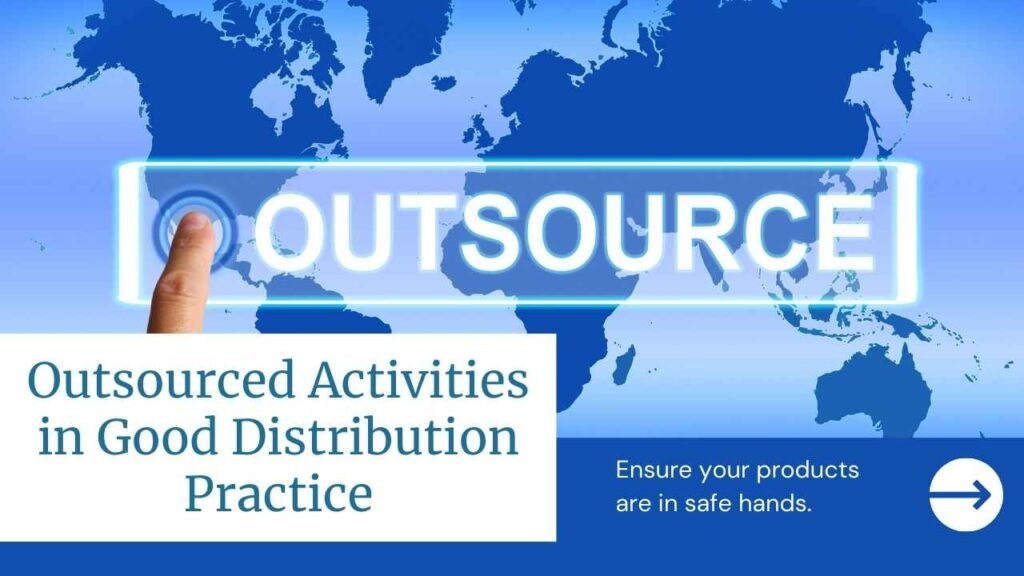
Outsourced activities within the GDP framework must be meticulously defined, agreed upon, and controlled through written contracts to prevent potential misunderstandings that could compromise the integrity of the distributed products.
The contract giver bears the responsibility for the outsourced activities, including assessing the competence of the contract acceptor and ensuring adherence to GDP principles. Regular audits of the contract acceptor, conducted before the commencement and after any changes to outsourced activities, are crucial.
On the other hand, the contract acceptor must meet specific requirements, including having suitable premises, equipment, procedures, knowledge, experience, and competent personnel. The contract acceptor is prohibited from outsourcing contracted work to a third party without prior evaluation and approval from the contract giver, accompanied by an audit of the third party.
Tips for Effective Implementation – Outsourced Activities:
- Clearly define and document all outsourced activities to avoid misunderstandings.
- Establish comprehensive written contracts between the contract giver and contract acceptor outlining the duties of each party.
- Prioritize regular audits of the contract acceptor’s facilities and activities by the contract giver to ensure compliance with GDP principles.
- Provide the contract acceptor with all necessary information to carry out contracted operations in line with specific product requirements.
- Assess the competence of the contract acceptor before outsourcing activities and reevaluate whenever there are changes to the outsourced tasks.
- Determine the frequency of audits based on risk factors associated with the nature of outsourced activities.
- Prohibit the contract acceptor from outsourcing any work to a third party without prior evaluation, approval, and audit by the contract giver.
- Ensure that arrangements with third parties maintain the availability of wholesale distribution information as per the original contract.
- Require the contract acceptor to refrain from any activities that could adversely affect the quality of handled products.
- Establish effective communication channels, and the contract acceptor must promptly share any information influencing product quality with the contract giver.
Self-Inspections
Self-inspections are an integral part of GDP compliance. Wholesalers should establish a self-inspection program to assess their operations and identify any non-compliance, deficiencies, or irregularities. The self-inspection results should be recorded, and corrective and preventive actions should be implemented and documented.
Tips for Effective Implementation – Self Inspection:
- Implement a self-inspection program covering all aspects of GDP within a defined time frame.
- Divide self-inspections into several individual assessments of limited scope for thorough coverage.
- Designate competent company personnel to conduct impartial and detailed self-inspections.
- Consider the use of audits by independent external experts as a supplementary measure, not a substitute for self-inspections.
- Record all observations made during self-inspections in detailed reports.
- Provide copies of self-inspection reports to management and relevant personnel.
- Determine the causes of any irregularities or deficiencies observed during self-inspections.
- Document and implement corrective and preventive actions (CAPA) in response to identified issues.
- Follow up on CAPA to ensure the resolution of observed irregularities and prevent their recurrence.
Transportation
During transportation, wholesalers must ensure that the products are not damaged, contaminated, or exposed to unfavorable conditions. Confirming the validity of the delivery order, labeling the shipping containers with handling and storage requirements, and protecting the vehicles and medicines against theft are essential measures. Any deviations or incidents during transportation should be reported and appropriately addressed.
Tips for Effective Implementation – Transportation:
- Implement a risk-based approach when planning transportation to ensure the protection of medicinal products.
- Maintain required storage conditions during transportation as specified by manufacturers or on the outer packaging.
- Report and investigate deviations such as temperature excursions or product damage during transportation.
- Ensure vehicles and equipment used in distribution are suitable, well-maintained, and equipped to prevent exposure to conditions affecting product quality.
- Establish written procedures for the operation, maintenance, cleaning, and safety precautions of vehicles and equipment.
- Conduct risk assessments of delivery routes to determine where temperature controls are necessary.
- Use dedicated vehicles and equipment when handling medicinal products; implement procedures for non-dedicated cases.
- Designate persons and establish written procedures for emergency deliveries outside normal business hours.
- Select containers and pharmaceutical packaging based on storage and transportation requirements, space, temperature extremes, and validation status.
- Use containers with labels providing sufficient information on handling, storage requirements, and precautions.
- Implement additional control systems and protocols for the delivery of products requiring special conditions, such as narcotics or psychotropic substances.
- Transport highly active and radioactive materials in safe, dedicated, and secure containers and vehicles.
- Use qualified equipment for temperature-sensitive products and maintain temperature monitoring equipment on temperature-controlled vehicles.
- Conduct temperature mapping under representative conditions, considering seasonal variations.
Related Article: Transport Validation in GDP
FAQ
cGMP ensures the quality of pharmaceutical manufacturing processes, while GDP safeguards the quality and safety of products during their journey through the distribution chain. Together, they ensure a comprehensive approach to quality and patient safety.
All stakeholders in the pharmaceutical supply chain, including manufacturers, wholesalers, and distributors, are responsible for implementing GDP. Regulatory authorities set and enforce GDP standards to safeguard public health.
Let’s consider the distribution of a temperature-sensitive vaccine. GDP would ensure that the vaccine is stored and transported in controlled conditions, with regular monitoring, documentation, and adherence to all relevant quality standards. This prevents any compromise to the vaccine’s effectiveness, ensuring it reaches healthcare providers and patients in optimal condition.
GDP combats counterfeit medicines by enforcing stringent supplier qualifications, secure storage practices, and the implementation of technologies like serialization. This traceability ensures that the authenticity of medicinal products can be verified throughout the supply chain, reducing the risk of counterfeit infiltration.
Technology, such as temperature-monitoring devices, track-and-trace systems, and serialization tools, plays a crucial role in GDP. These advancements enhance visibility, control, and traceability, ensuring the integrity of medicinal products from manufacturing to distribution.
Conclusion
Good Distribution Practice (GDP) is of utmost importance in the pharmaceutical industry to ensure the quality, integrity, and safety of medicinal products throughout the supply chain. Adhering to GDP guidelines helps protect public health, maintain product efficacy, and prevent the distribution of substandard or counterfeit products.
By implementing robust quality management systems, adhering to regulatory requirements, and following best practices, wholesalers and distributors can contribute to the overall integrity of the pharmaceutical supply chain.
It’s essential to recognize that this commitment aligns with the broader framework of Good Practices (GxP), reinforcing the industry’s dedication to excellence and patient well-being.

